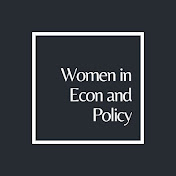Pandemics and women’s labour market participation in India: A long view
By Ashwini Deshpande & Bishnupriya Gupta | 20 November 2020The experience of the pandemic teaches us that a normalisation of ‘working from home’ supposedly allows women to participate in paid work and simultaneously take care of domestic responsibilities. However, without changes that ensure more equality in domestic work as well as in paid work opportunities and more importantly changes in social norms about women’s work, we are unlikely to see a significant change in women’s participation in the labour force.
Gender and education: Two dimensions of Bias
By Anisha Sharma | 8 November 2020We find that the [PNDT] ban led to an increase in the probability of births of girls in families with firstborn girls by 2.5 percentage points. Surviving girls in affected states were less likely to complete grade 10, grade 12 and enter university relative to boys.
A normalisation of WFH is unlikely to raise women’s participation in the labour force
By Ashwini Deshpande | 6 November 2020The experience of the pandemic teaches us that a normalisation of WFH — without concomitant changes that reduce the burden of domestic chores and care work, and an increase in paid work opportunities — is unlikely to raise women’s participation in the labour force. As the pandemic forces our economy to hit the “reset” button, paying attention to job creation with a gender equity lens is essential for India to realise its tremendous gender dividend.
The RBI tunes in to the economy
By Pulapre Balakrishnan | 15 October 2020In the recent reconstitution of the Monetary Policy Committee, which conducts monetary policy in India, we can find a refreshing shift away from dogma. Not all its members may be macro-economists in the conventional sense but their work conveys that they will not be governed by rigid adherence to the model of inflation underlying RBI’s inflation targeting policy.
Why Data Matters to Journalism
By Anisha Sharma | 20 September 2020Data is quite hard and tedious to get access to. Even data that is publicly available can be quite hard to get hold of. People find it hard to verify some of the things we say. Even when it's available, it's just a lot of detail that can be quite hard to process and to communicate...We're setting up Centre for Economic Data and Analysis (CEDA), where we plan to host a number of large publicly available datasets that provide easily downloadable and visualisable insights to people. We want people to be able to correlate simple variables with one another.






